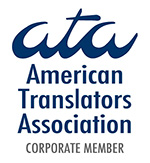IKEA’s foray into Thailand had them bumping into the country’s linguistic and cultural furniture
Around the turn of the century, Thailand was one of the region’s “tiger cub” economies, striving to match the export-oriented success stories of South Korea, Taiwan and the other Asian Tigers.
But by 2005, Thailand’s economy had stalled and its once-flourishing democracy had given way to a military coup, leaving the country struggling to cope with corruption and natural disasters. In contrast, the economies of fellow tiger cubs like Vietnam, Philippines, Malaysia, and Indonesia had pushed ahead.
While poverty has since been radically reduced in Thailand, Thais have grown frustrated at the persistently slow pace of economic growth, which has devalued the nation’s currency and left the country’s middle class—many of whom with an average annual income of less than US$6,000—impatient for the kind of affluence its richer neighbors enjoy.
Yet the attractions of entering the Thai market are not hard to understand. This is a bustling nation of 66 million people, blessed with great food and wonderful weather, surrounded by the sea. Labor costs are not the lowest in the region, but they are miniscule for Western companies and businesspeople. The Thai economy is the world’s 20th largest by GDP (adjusted for purchasing power parity) and the 27th largest by nominal GDP. There is also a rising consumer middle class. This is dubbed the Land of Smiles and it’s no lie. Thais may struggle to make ends meet, but you wouldn’t know it from their pleasantness and frequent laughter. Thailand is a pleasure to live in, and to do business in–most of the time.
IKEA’s experience sheds some light, however anecdotal, on the vexing linguistic and cultural difficulties that even world-class companies encounter when trying to break into the Kingdom of Thailand. Many things in Thailand are easy. Its language is not. There are 44 consonants and 32 vowels in Thai. Tones make all the difference: “New wood doesn’t burn, does it?” could be transliterated in Thai as “Mai mai mai mai mai?”
IKEA, evidently aware of the difficulties, did its homework. The Swedish furniture giant, renowned for doing things big, learned after four years of linguistic research that names of several of its most popular products – for example, its Redalen bed and Jättebra planter in particular – resembled Thai words describing sex acts.
IKEA, deeply attached to its Scandinavian names and branding, refused to rename the offending products for the Thai market. Instead, they hired a team of translators to concoct alternate Thai spellings which wouldn’t remind locals of lewd and lascivious terms.
The media had a field day, and clearly the big-box retailer didn’t mind the PR. Time Magazine wondered ‘Why IKEA Products Sound Naughtier in Thai.” Gizmodo heralded “The Time Ikea Almost Offended Everyone in Thailand by Naming Furniture After Raunchy Sex Acts.” But the key word was “almost.”
Thanks to Ikea’s clever translators, who ensured safe Thai spellings and pronunciations, the company won sensational publicity from this click-bait tale, and basked briefly in the limelight of political correctness. Very briefly.
Later that same year, on the anniversary of its Bangkok opening, IKEA launched an advertising campaign using the brand’s tried-and-true message of good wood for low prices. What could be more innocuous than running a TV spot announcing a sale?
Well, somebody at IKEA or its agency thought it would be funny to show a Thai ladyboy – the local name for transsexual – getting so aroused by seeing the word SALE in the store that she blurts out the word in a sotto bass voice, horrifying a middle-age male companion, who flees in terror. The ladyboy ends up lugging the lumber from the store.
Thais like to make fun of ladyboys. But they are Thai. Having a Swedish outsider do the same was not OK. An outcry against the firm by Thailand’s LGBT community ensued.
In an open letter to the Swedish retail titan, the Thai Transgender Alliance slammed the spot, calling it “a parody of a weirdo” that “perpetuates a misunderstanding of transgenderism as a deceitful and deviant lifestyle.” It suggested that the advertising could “lead to violence and various forms of abuses such as sexual harassment.”
An IKEA Thailand marketing official was quoted in the press saying that he had spoken with the transgender group and that the conversation “had gone down smoothly.” The company apologized, yanked the ad, and gained even more publicity from the faux-pas.
The moral of the story: just because you use cunning linguists, doesn’t guarantee you’ll hit the spot.
By Richard Koret
for Meridian Linguistics




Leave A Comment